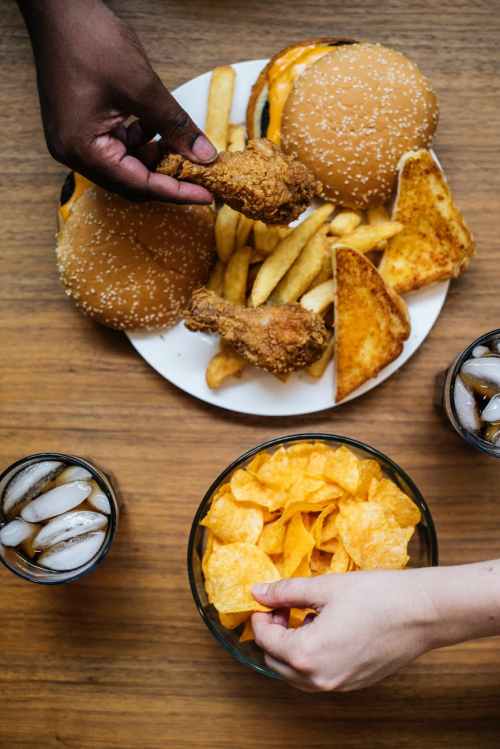You can’t outrun a bad diet. Words to live by. And, why not start early, like with our kids.

Photo by rawpixel.com on Pexels.com
What’s the best way to prevent children from overloading on bad food choices? Flinders University in Adelaide South Australia researchers have found that promoting substitution is the answer to turn around children’s excessive consumption of nutrient-poor foods and beverages – resulting in nutritional benefits that are even better than reducing intake of these discretionary food and drink choices.
Flinders University researchers studied the impact on the energy and nutrient intakes of more than 2000 Australian 2- to 18-year-olds through simulations of three dietary strategies.
They found that substitution (replacing discretionary choices for healthy foods) and moderation (reduction of discretionary choices) achieved the greatest differences in energy, added sugars, and sodium intake, although substitution had a smaller impact on protein, fiber and micronutrients readings compared with the moderation strategy.
A third strategy – reformulation, which is finding discretionary foods with reduced saturated fats, added sugars and sodium – is the least effective means of changing excessive intakes, but the researchers say it still has a role to play in changing children’s diet choices and, with further food science adaptations, the potential for significant benefits.
“Each of three dietary strategies have a role in improving diet quality, with varied effects on energy, saturated fat, added sugars and sodium,” says report co-author Associate Professor Rebecca Golley, Flinders University’s nationally recognised expert in child obesity and nutrition promotion.
“The message is to replace discretionary choices with foods such as vegetables, whole grains and dairy. This will achieve similar benefits to moderation but will have the additional benefits of improving diet quality and micronutrient intake.
“Dietary approaches to reduce discretionary choices (moderation) or replace them with core choices (substitution) show promise in achieving meaningful reductions in energy intake for obesity prevention in Australian children.”
The research into better parenting to manage and prevent childhood obesity highlights that almost one in four Australian children is overweight or has obesity by the time they start school, often leading to a lifelong trajectory of obesity, poor health and reduced achievement.
The study’s dietary interventions involved a 50% reduction of intake (moderating), replacing 50% of discretionary choices with core foods (substituting), or choosing food and drink products with reduced target nutrients (reformulating).
Associate Professor Golley says findings from this study support messages from the latest 2015-2020 Dietary Guidelines for Americans, to shift to healthier food and beverage choices by replacing discretionary choices for core foods and beverages.
She says that future research and policies should consider how a combined application of the three dietary strategies can best target all discretionary food and drink choices to achieve the greatest potential impact in improving children’s diets and combating childhood obesity.
“There is also great potential for these three strategies to be targeted at specific food and drink subgroups including cakes and cookies, French fries and takeaway foods, in addition to sugar-sweetened beverages,” says Associate Professor Golley.








easy to write, say or tell others to do, not so simple to “just do it.” DIE-ts are usually doomed to fail from the outset due to deprivation. moreso when they aren’t tailored for the individual. then there are issues of affordability and access to healthy food (and how is a layperson to determine what that is when dietitians don’t agree?), changing habits, culture, genetics, and more. i gave up meat and got anemia. i gave up flour and got no weight loss. i’m just saying, it’s complicated.
LikeLiked by 2 people
The word diet comes from the Greek word diaita which means way of life. When you remove something from your diet, you need to replace it with an element that supplies your body with the good things that you had got from it and doesn’t have the bad things. Meat gives us protein and calcium among other things. If you didn’t replace them you only accomplished half of what you set out to do. It is simple, but not easy. It is also a ‘one day at a time’ deal. Living and eating healthy takes daily effort and attention. I hope this was helpful. I started heavy and now I am healthy. You can do it.
LikeLiked by 1 person